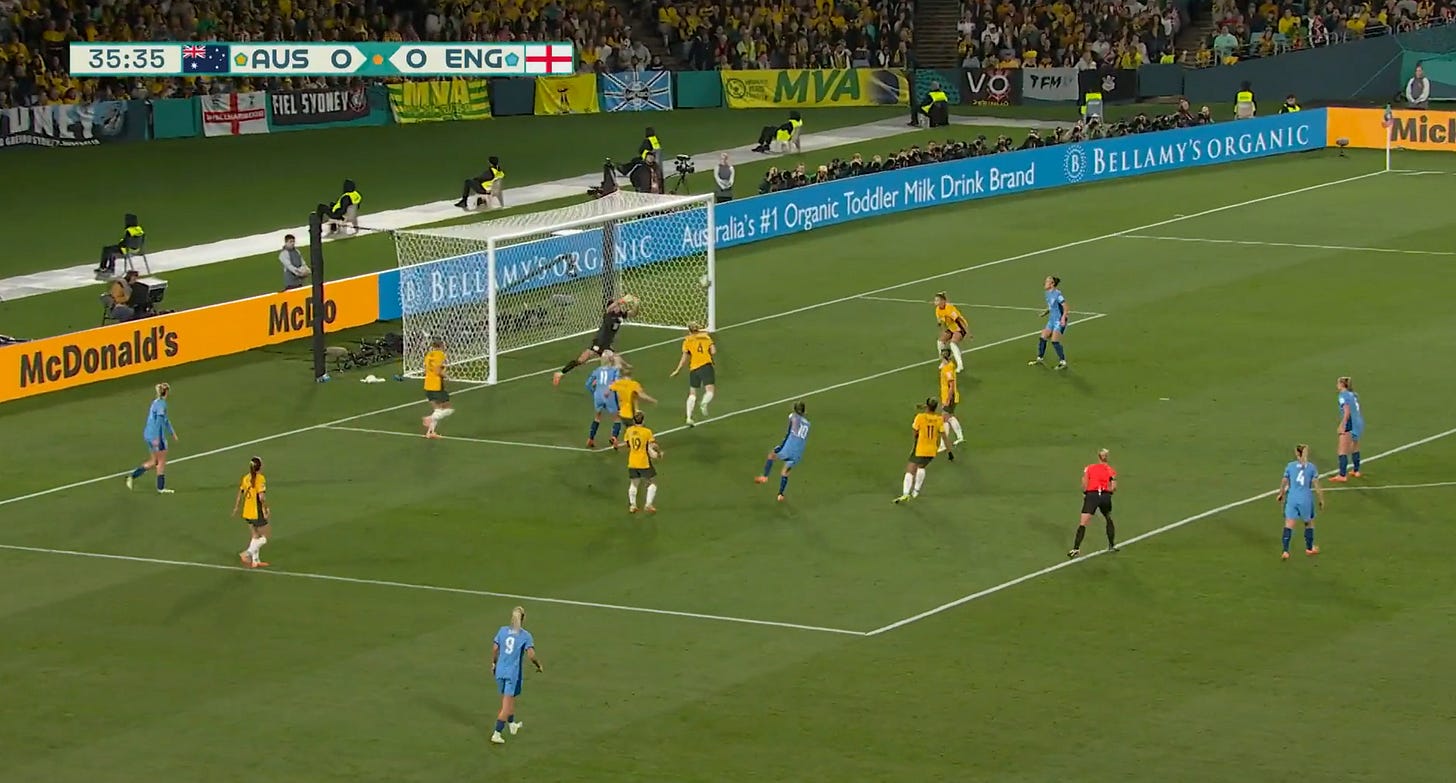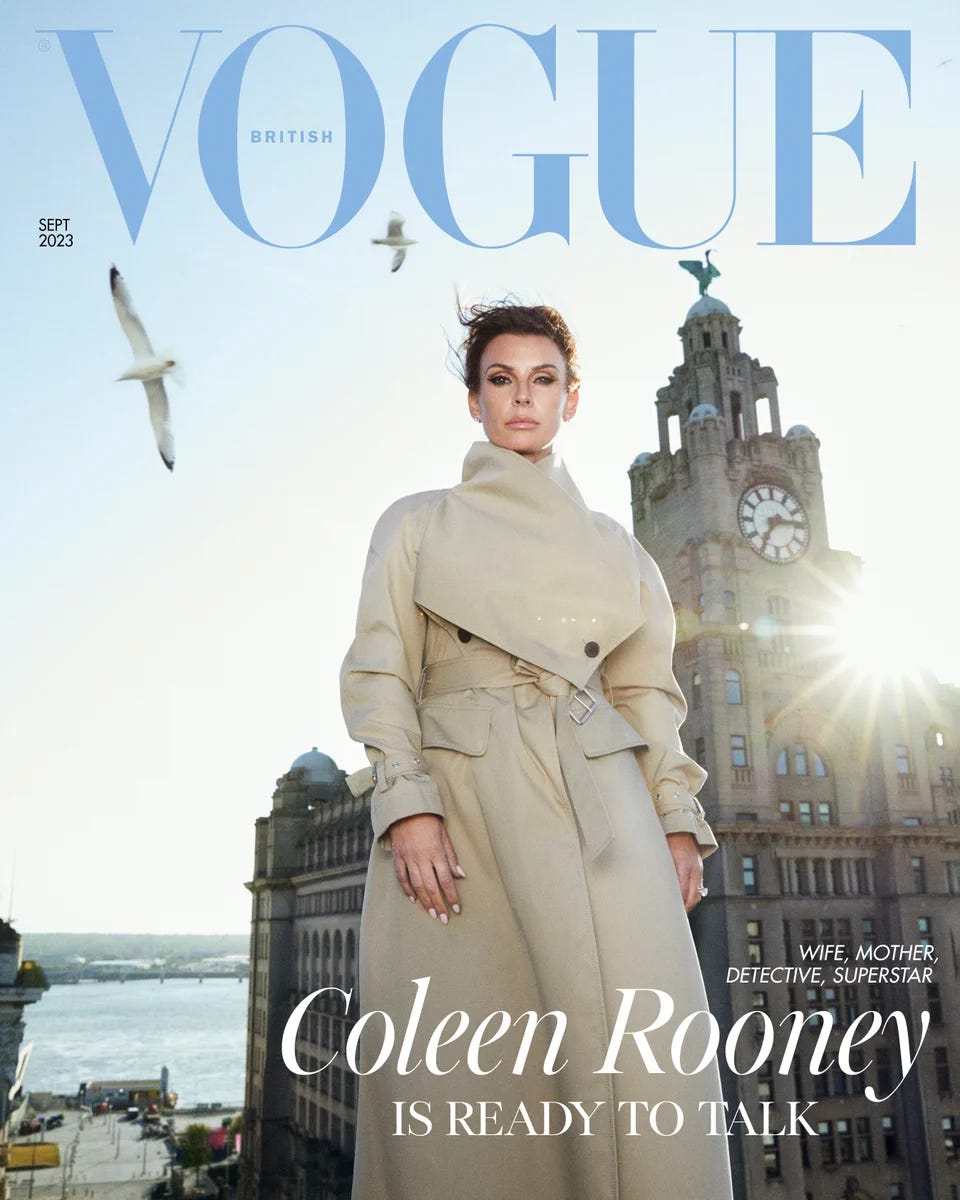Borkowski Weekly Media Trends: Immortal Parkinson, Lionesses Roar & More
PLUS: 'Voguetha Christie'& Plant-based Malaise ctd...
Mark Borkowski on Michael Parkinson & intergenerational cultural wisdom…
As time continues its forward march and the stalwarts of bygone eras gradually recede into history, an intriguing challenge arises: how do we ensure that these cultural giants' legacies remain preserved and relevant? This quandary becomes particularly timely when we consider figures like Michael Parkinson against the backdrop of a TikTok-driven cultural zeitgeist. In the midst of these shifts, it is imperative to bridge the gap between the timeless contributions of these icons and the contemporary preferences of a rapidly evolving audience.
The historical tapestry upon which the likes of Parkinson embroidered their influence can serve as an evocative connection between the past with the present. Their contributions have indelibly shaped celebrity landscapes, societal norms and fame itself. By tracing the contours of Parkinson's impact, we fortify his relevance, transforming the celebrity interview into a living source of inspiration, and a cultural-historical artefact.
Millennials and Gen Zs who want to understand something of the power of Muhammed Ali's charged charisma or Helen Mirren's magnetic, defiant feminism in her early career need look no further than Parkinson's interviews, immortalised on the very social media platforms that thrive on bite-sized transience.
Today's digital realm demands a recalibration of our storytelling techniques. Platforms like TikTok aren't mere fads; they are conduits for contemporary expression. Reimagining how figures like Parkinson might remain relevant in today's context presents a challenge. As trendy influencers offer their insights in formats that resonate with today's audience, there's an inherent need to transcend the old rules of fame.
As the world evolves, so do its challenges. Connecting the values and achievements of icons like Parkinson to contemporary issues underscores their timeless relevance. In the midst of cultural evolution, constant reflection becomes the alchemy that transmutes historical relevance into living wisdom. Revisiting the past through the lens of the present ensures that the legacy of these passing icons remains more than a relic. It becomes a lodestar.
Ultimately, the challenge of upholding the legacy of cultural icons amidst the flux of time isn't a mere tribute. These conversations enrich our understanding of where we've been and where we're headed. It's a testament to the intricate dance of culture across ages, a dance that perpetually whispers its wisdom to the hearts of all who care to listen.
Lionesses Roar ahead of Historic Final
This Sunday the Lionesses have an opportunity to make history and break England's World Cup drought by beating Spain in the final. The Lionesses have impressively built on their Euro 2022 victory and will be looking to go back-to-back in successive major tournaments.
England's success and journey through the tournament have bought millions of viewers, with 7.3m tuning into England's semi-final on Wednesday, just shy of the 11.7m that tuned into the 2019 semi-finals, where England lost to the USWNT, despite the punishing time difference due to this year's tournament taking place in Australia and ITV broadcasting the semi-final this year instead of the BBC.
But these stats don't tell the entire story of the Lionesses’ PR victory (and that of their fellow advocates for the women’s game). A report from Enders Analysis, highlighted in a Press Gazette piece, reveals a surge in media coverage of women's sports, with dedicated sections gaining unprecedented traction. Unlike men's sports, which have reached 'saturation', every facet of women's sports coverage is improving. There is an ongoing demand and expectation that coverage of women's sports should be treated on par with coverage of men's sports, rather than being treated as secondary or supplementary content within media organisations.
As shown on a Linkedin post by PG’s Charlotte Tobitt, the Guardian has already reached 30m total page views for the tournament yesterday afternoon, compared to 22.9m for the whole Women's World Cup in 2019 and 5.4m in 2015. Moreover, this coverage isn't cannibalising space devoted to men's sports; it's recognised as an opportunity to engage diverse readerships.
Publishers like BBC Sport and The Telegraph have played an important role in showcasing the success of dedicated women's sports sections. Quality news brands have spearheaded this movement, setting the stage for improved coverage and engagement.
It's a clever approach that has established many national news organisations as frontrunners in providing a platform for women athletes and teams, demonstrating that meaningful coverage translates to audience engagement. And if England beat Spain to take the World Cup crown, this shift will likely place women's football and other sports on a transformative course, which will be fascinating to track.
Voguetha Christie: Coleen Reigns Supreme
This week saw none other than WAGatha Christie herself grace the digital cover of Vogue, with a majestic Coleen Rooney posing in front of the Liverpool skyline alongside the words ‘Wife, mother, detective, superstar.'
The inevitable internet frenzy ensued, with the stunt being labelled ‘iconic’ by some, ‘trashy’ by others. Was this a parting shot from Edward Enniful, just having a bit of fun with his last few issues? Has it damaged the Vogue brand at all? Is it the greatest PR coup of all time for Team Rooney?
Whilst Vogue has a history of using their digital covers to promote the slightly less A-list stars that might look more at home on the cover of OK! Magazine (no offence, Nicola Peltz), it’s a smart and easy PR hit for them that requires little effort but instantly gets everybody talking about them. Having a digital cover star just gives the brand another monthly hit in the press, so why not use the opportunity to shine a light on someone unexpected who they know the media will lap up? We saw it with Miriam Margoyles and Maya Jama earlier this year and no doubt it’ll continue.
One thing is for sure – if it’s a win for Vogue, there is no doubt that Coleen Rooney reigns supreme. As for Coleen, painted once more as the classy victor, it's another vindication of her decision to call out her former friend. You can’t deny that for her, it’s nothing but a bold and brilliant way of reinventing herself, aligning her brand with one of the most famous and revered fashion outlets in the world. She had absolutely nothing to lose by agreeing to do it. Now Rebekah Vardy just needs to start negotiations with Elle…
Plant-Based Malaise pt.2 The PR Angles
Following last week’s new of Beyond Meat’s commercial struggles, this week we’ve gleaned further insight into the issues faced by the plant-based sector.
While Beyond Meat’s dive in sales seems to have been impacted by the cost-of-living crisis leading it to be deemed an expendable luxury, the wider sector faces other reputation issues.
The first is self-inflicted. As Amelia Tait pointed out in an excellent but highly-critical FT article, plant-based food brands have fallen into an unfortunate spiral of ‘relatable’, kids tv presenter-style marketing that prizes chummy quirkiness over any kind of messaging of substance. Tait concludes: “Vegan companies may not kill animals — but it’s safe to say they’ve killed the joke.”
The plant based market is potentially facing a variation of the problems previously faced by the craft beer market, whose collective ‘beer swilling lad with a heart of gold’ shtick both jumped the shark with its audience, and has arguably exacerbated underlying reputational issues.
As if their collective industry marketing tactics being called out as cringe wasn’t bad enough, a Fast Company investigation revealed that plant-based food companies are facing an increasing culture wars-style backlash in the form of online disinformation campaigns such as one that compares Beyond Meat burgers to dog food.
While no direct link is made, there’s at least an anecdotal connection (exemplified again by one craft beer brand in particular...) between the chummy do-gooder approach to marketing and accusations of virtue-signalling. This wouldn’t plunge every brand into the toxic swamp of the culture wars but the issue for plant-based brands is that veganism and vegetarianism have for decades been seen as political – inextricably linked to a kind of teacher’s pet progressivism that’s a red rag to right-wing agitators.
The cost-of-living crisis is inarguably a massive factor in the industry’ struggles, but these communications and reputation issues compound the challenges facing the plant-based market.






